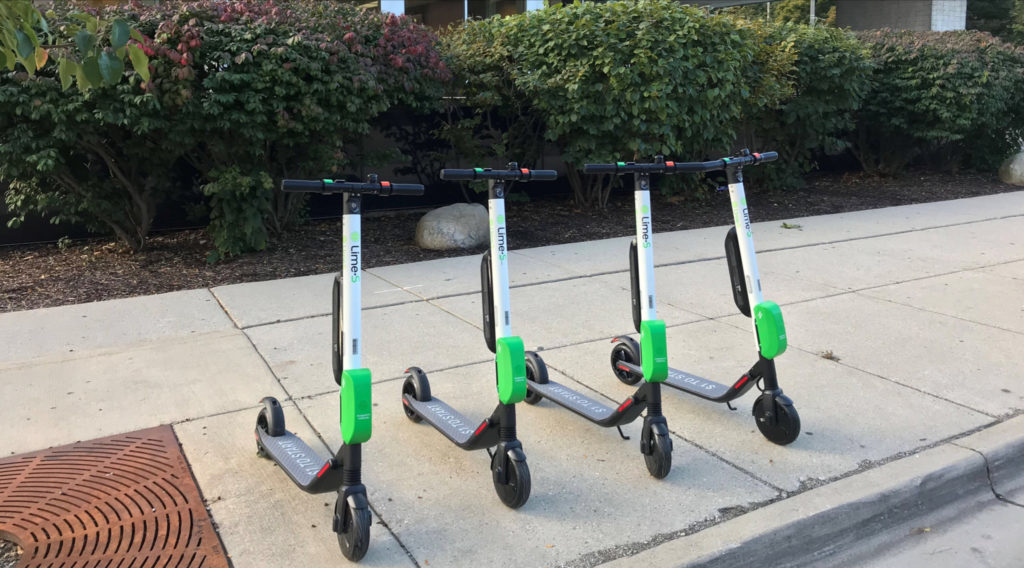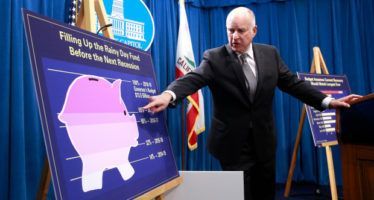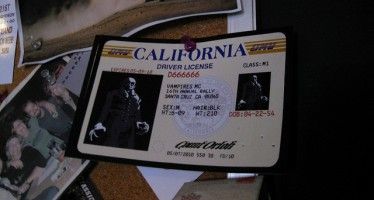Impact of scooters on environment still in question
The dockless electric scooters that started popping up in California cities three years ago are facing a two-front backlash.

The first front involves complaints over heavy use hurting quality of life in tourist areas and posing safety risks to both users and pedestrians.
In Los Angeles, anger over scooters has left city leaders increasingly open to a regulatory crackdown and led to hundreds, perhaps thousands, of scooters being vandalized. In San Diego, California’s second largest city, whether to ban or severely limit scooters is shaping up as a major issue in the 2020 mayoral race. One of the two early frontrunners, Democratic Assemblyman Todd Gloria, is a scooter supporter. The other, Democratic Councilwoman Barbara Bry, sees them as a failed experiment.
The second front of criticism has generally caught the scooter industry by surprise: That’s the view that one of scooters’ main selling points – that they help the environment by limiting vehicle emissions – is exaggerated or false.
Scooters only last a month or two, not a year
The criticism took off last year after industry leaders Bird and Lime disclosed that many scooters were only lasting a month or two, not nearly a year, as some investors were told. That means the amount of industrial pollution generated by the manufacturing of the inexpensive scooters is five times or more what was expected.
Now a Los Angeles Times’ report detailing academic research into the question of scooters’ effects on the environment has confirmed how much the durability issue undercuts hopes that scooters will bring emissions down.
“While traveling a mile by scooter is better than driving the same distance by car, it’s worse than biking, walking or taking a bus – the modes of transportation that scooters most often replace. That’s primarily because of the energy-intensive materials that go into making the vehicles,” the Times noted, but also “because of the driving required to collect, charge and redistribute them.”
The key research cited by the newspaper was published last month in the journal Environmental Research Letters by North Carolina State University researchers Joseph Hollingsworth, Brenna Copeland and Jeremiah Johnson. While it did conclude that under current conditions, scooters were not helping the environment, the study was only partly downbeat.
Study offers mixed take on scooters’ value
The researchers said scooters could end up a net plus if durability were improved to the point that they lasted two years. The study also noted that scooter companies which developed more efficient systems for gathering and recharging scooters each night – in particular by not picking up scooters that still held charges – could limit emissions.
And the researchers not only found that scooters were very helpful in improving urban mobility, but that they “may be an effective solution” to one of the thorniest transportation issues: the “last-mile problem.” Because bus, train and other transit stops and stations are spaced blocks or even miles apart, transit officials struggle to efficiently get people from destination to destination.
Dockless scooters’ potential to reduce this problem has also been hailed by a Wall Street Journal columnist, a former Cato Institute researcher and urban planners in Australia.
Chris Reed
Chris Reed is a regular contributor to Cal Watchdog. Reed is an editorial writer for U-T San Diego. Before joining the U-T in July 2005, he was the opinion-page columns editor and wrote the featured weekly Unspin column for The Orange County Register. Reed was on the national board of the Association of Opinion Page Editors from 2003-2005. From 2000 to 2005, Reed made more than 100 appearances as a featured news analyst on Los Angeles-area National Public Radio affiliate KPCC-FM. From 1990 to 1998, Reed was an editor, metro columnist and film critic at the Inland Valley Daily Bulletin in Ontario. Reed has a political science degree from the University of Hawaii (Hilo campus), where he edited the student newspaper, the Vulcan News, his senior year. He is on Twitter: @chrisreed99.
Related Articles
Bill seeks to raise state’s F grade on budget transparency
Getting detailed information about the California budget has long been a headache. The state Department of Finance provides online access
Legislature advancing bill to stop license suspensions for unpaid fines
A bill to stop automatic suspensions of driver’s licenses for unpaid fines is only a few votes and one signature
CA 'Jobs Gap' Spikes Upward
MARCH 11, 2011 BY JOHN SEILER New unemployment figures released March 10 show that California’s Jobs Gap has jumped to




